Robert Menard: France's strongest far-right mayor
- Published
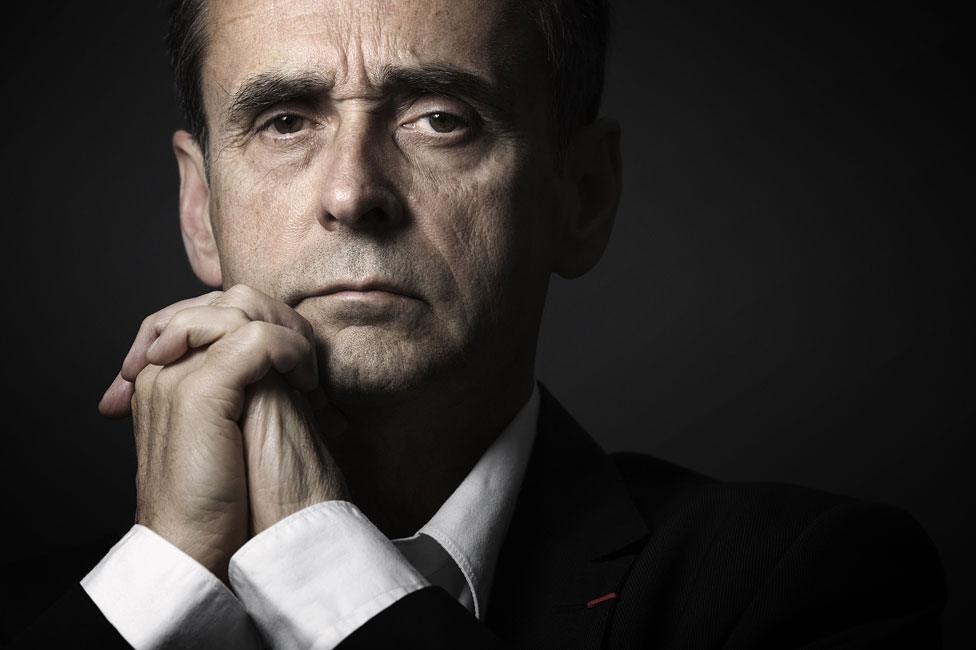
A mayor in the south of France has been accused of turning his city into a laboratory of the far right. But what is driving Robert Menard and why is he becoming the most controversial mayor in the country?
Robert Menard used to be a journalist, a socialist and the outspoken founder of an international press group, Reporters Without Borders. But 18 months ago he caused shockwaves by winning the town hall of Beziers, a city of more than 71,000, on a far-right ticket.
Although he is not Front National himself he came to power with the party's support, and this is now the biggest extreme-right stronghold in France. There are plenty of opponents trying to tear the stronghold down though.
The evening I attend a council meeting, protesters jump up and unfurl posters. "Menard, Beziers doesn't belong to you!" reads one. "We Welcome Refugees!" says another. Many more people are trying to squeeze their way through the heavy wooden doors into the chamber, but policemen hold them back.
Unable to bring the meeting to order, the mayor calls a vote on excluding the media and members of the public. It passes and I am obliged to leave, but fierce arguments are continuing in the courtyard outside.
One of the reasons for the anger is the latest issue of the municipal magazine, which carries on its front cover a news agency photo of refugees in Macedonia and a train with a sign saying "Beziers 3,865km". Another sign in the train window says, "Free schools, accommodation, and benefits for all" and the headline screams "They Are Coming!"
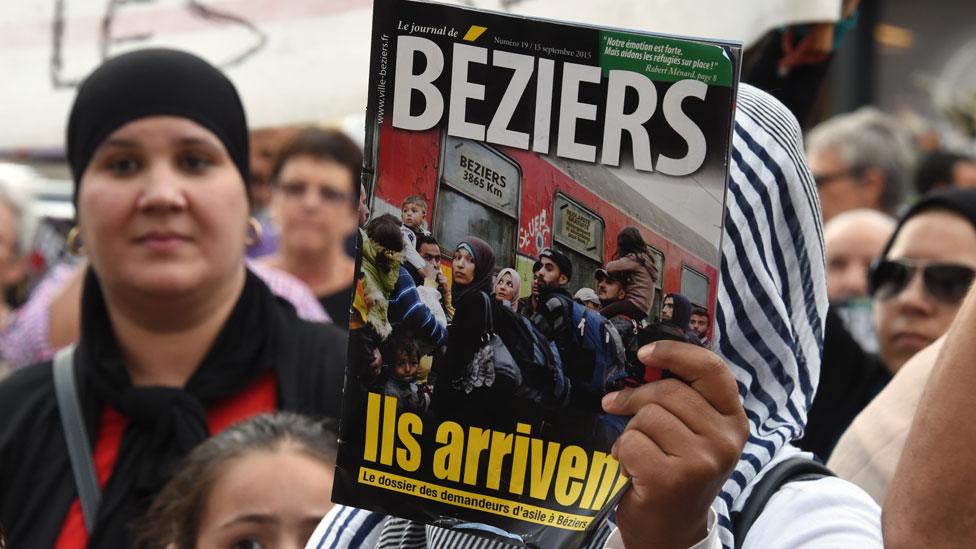
Agence France-Presse sued the mayor and the town hall in Beziers for misusing its photograph, and accused the mayor of scaremongering. Outside the council meeting copies of the magazine have been torn to shreds and strewn all over the floor like confetti.
When I next catch up with Robert Menard in a flower market on Beziers' main street he seems unperturbed. "We didn't get a chance to chat the other night", he laughs. "It was all a bit rock 'n roll wasn't it?"
Just before World War One Beziers grew "fabulously rich" thanks to the surrounding vineyards, he says, because they proved resistant to a disease that ruined the grape harvest elsewhere.
But Beziers is now one of the poorest cities in the country - one third of the population lives below the poverty line - and Menard has vowed to return it to its former glory.
A lot of his efforts have focused on petty crime and immigration.
He has doubled the number of municipal police, and issued them earlier this year with semi-automatic pistols - even though their main concerns are minor offences and traffic violations, and they leave serious crimes and investigations to the police nationale.
At the same time, the town was plastered with giant posters of handguns boasting "From now on police officers have a new friend". "A police force which is armed gets respect," Menard tells me.
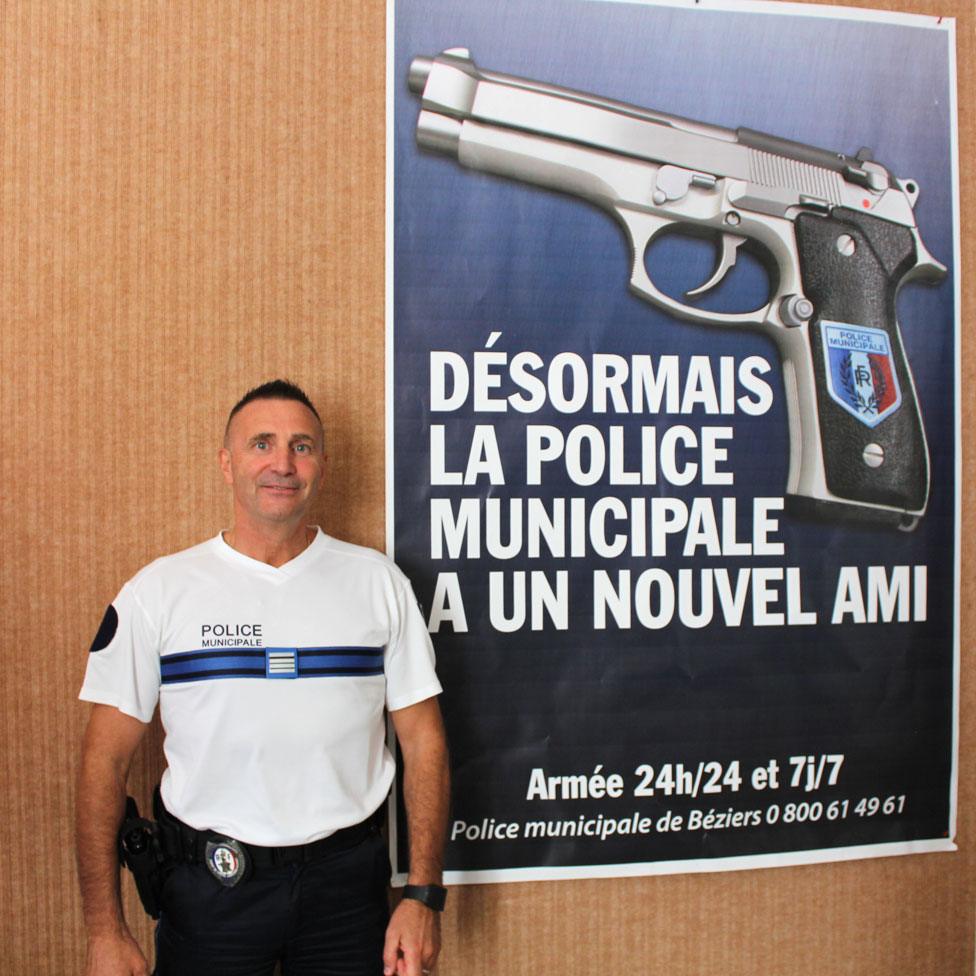
"A few years ago we had non-stop anti-social behaviour," says a passer-by clutching a briefcase. "There were fights, people taking drugs on those benches. And for years no-one did anything. Since M. Menard has come, all that's disappeared, and the tourists have come back."
Menard is also responsible for a Singapore-style ban on spitting and a curfew on children in the streets at night. But some accuse him of "social cleansing" and say his initiatives target the poor.

Find out more
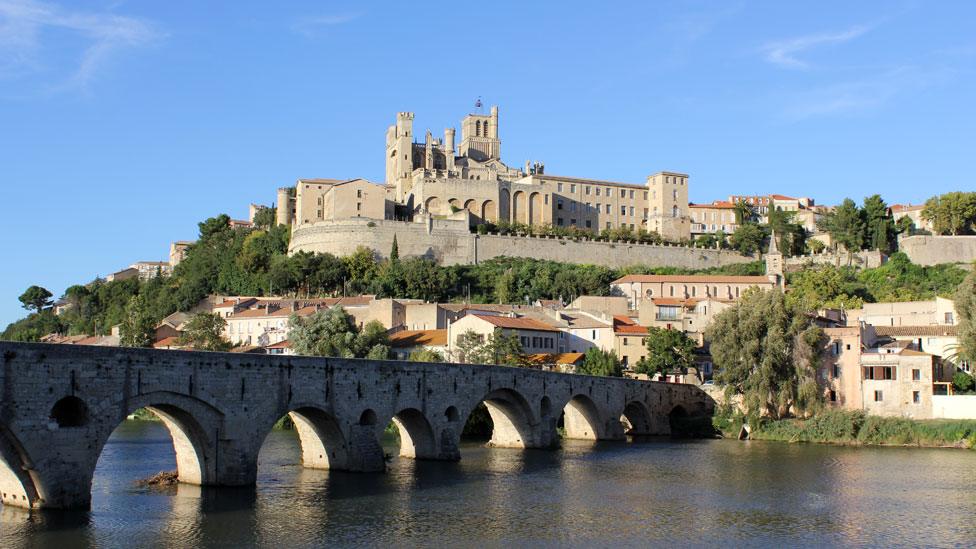
Listen to Lucy Ash's report for Assignment on the BBC World Service - The Mayor, the Migrants and France's Far Right - click here for transmission times or to listen online.

And there has been ban on satellite dishes, and hanging out washing in the town centre. "This is the south of France!" says Sofia, a young web designer. "What does he expect people to do with wet clothes? Not everyone can afford a tumble dryer."
Menard's tough line on immigration is illustrated not only by the "They are coming!" headline but also by a now notorious video, external.
It shows Menard marching into an apartment block in one of Beziers' most deprived neighbourhoods, La Deveze. He has a blunt message for some newly arrived Syrian families there - they're not welcome in his town.
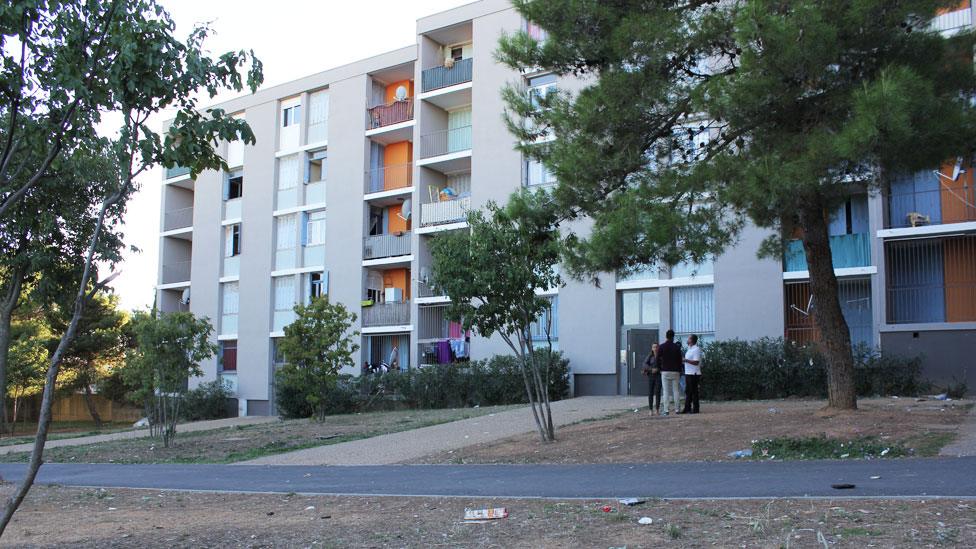
At first sight the video looks like a spoof. The diminutive mayor is wearing his red, white and blue sash, flanked by burly police in bulletproof vests. There is also a bespectacled translator who speaks a strangulated English reminiscent of the TV comedy Monty Python.
But Menard is not joking. He berates a dazed-looking young Syrian man in a yellow T-shirt for breaking into the flat and "stealing the water and electricity".
"If you don't leave, the police will make you," Menard tells the man, his wife and a small child before moving on to other flats where seven other Syrian families are squatting.
Ultimately the mayor's attempt to expel the refugees was blocked, as evictions must be ordered by a court. What's more the rent-controlled flats aren't under his jurisdiction. And he said the Syrian children wouldn't be allowed into local schools - if this happened it would be a violation of French law.
The video went viral in France. Some approved while others were appalled and accused him of heartlessness - an accusation he rejects. He says his twinning of Beziers with the largely Christian community of Maaloula near Damascus proves he is not against helping Syrians.
"I liked what you did in la Deveze," one stallholder told Menard as he and I walked through the flower market. "I watched it four times!"
At the same block of flats, a few weeks after the video was filmed, I meet Hakim, the first man who opened the door in the video. He tells me he was bewildered as well as frightened.
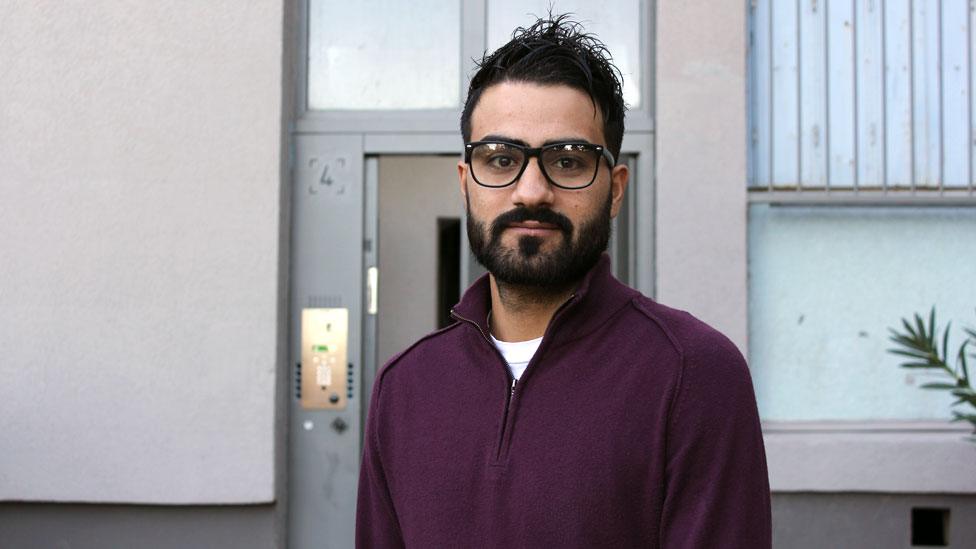
"I told him I have children - where are we supposed to go?" he says.
Karim Zenouti, the vice-president of the Beziers mosque, says the flats occupied by the Syrians have been empty for several years.
"We know that the mayor is trying to seduce his electorate, the Front National supporters," he says. "And what are the Frontistes doing? They are spreading fear."
Menard portrays himself as a straight-talker, fighting what he sees as a hypocritical political establishment. His sense of being an outsider may come from his roots in a pied-noir family - the name given to European settlers who once lived in North Africa.
He was nine in 1962 when Algeria became a sovereign state and the family had to leave for France.
Jean Michel du Plaa, who heads the socialist group in Beziers, argues that Menard has moved even further to the right than the Front National and its leader.
"Marine Le Pen tried to detoxify the Front National," he says "but Robert Menard on the contrary is very comfortable with the extreme of the extreme right."
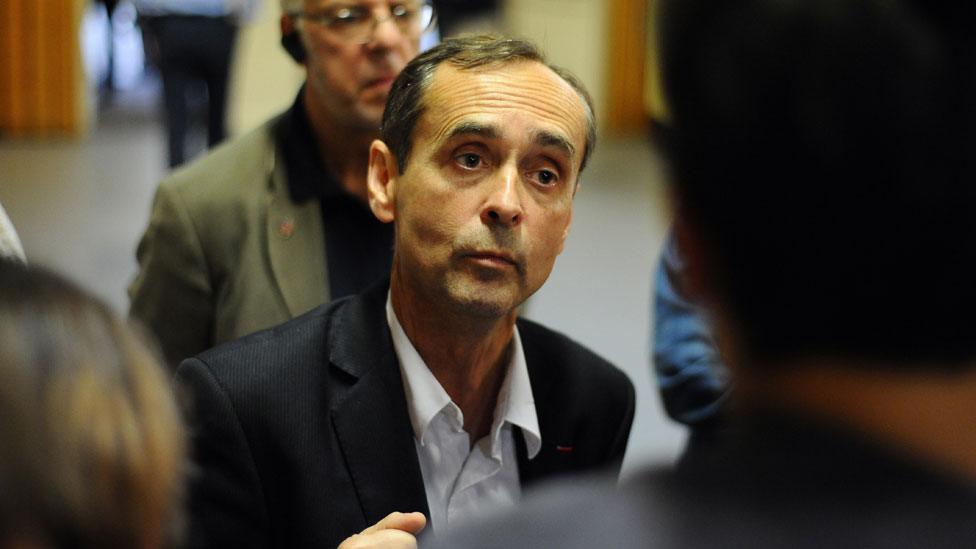
Beziers has become a political laboratory, he says, and citizens feel "like guinea pigs or lab rats".
Some complain Menard is publicity mad and only cares about le buzz or making headlines. They now call him "the mayor of Buzziers".
Others say there's method in his madness and that his in-your-face, far-right policies may help to make the Front National look moderate on issues like security and immigration. And that just might boost Marine Le Pen's chances in her 2017 bid for the French Presidency.
Listen to Lucy Ash's report for Assignment on the BBC World Service, The Mayor, the Migrants and France's Far Right - click here for transmission times or to listen online.
Subscribe to the BBC News Magazine's email newsletter, external to get articles sent to your inbox.